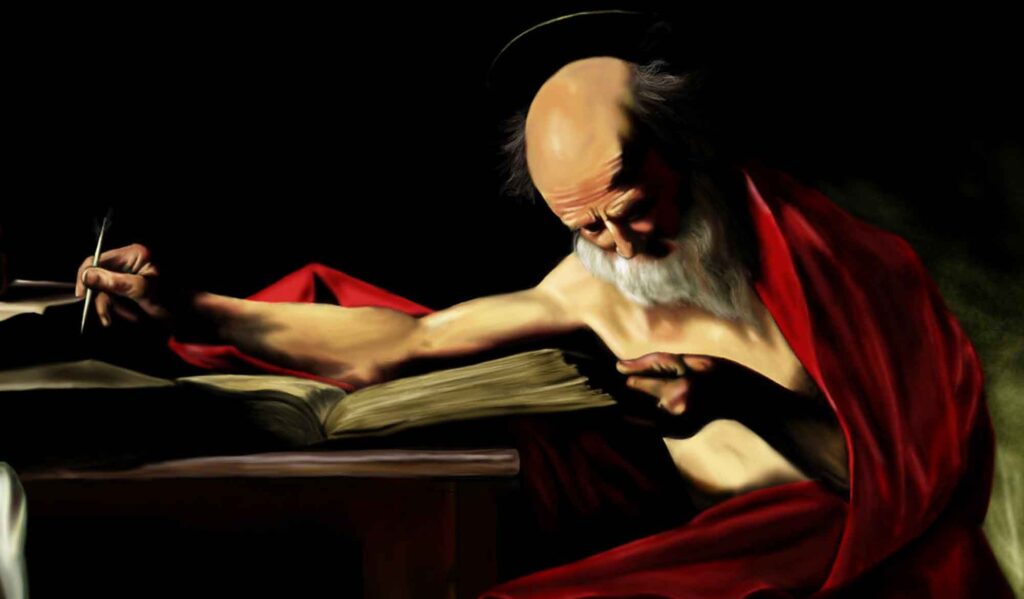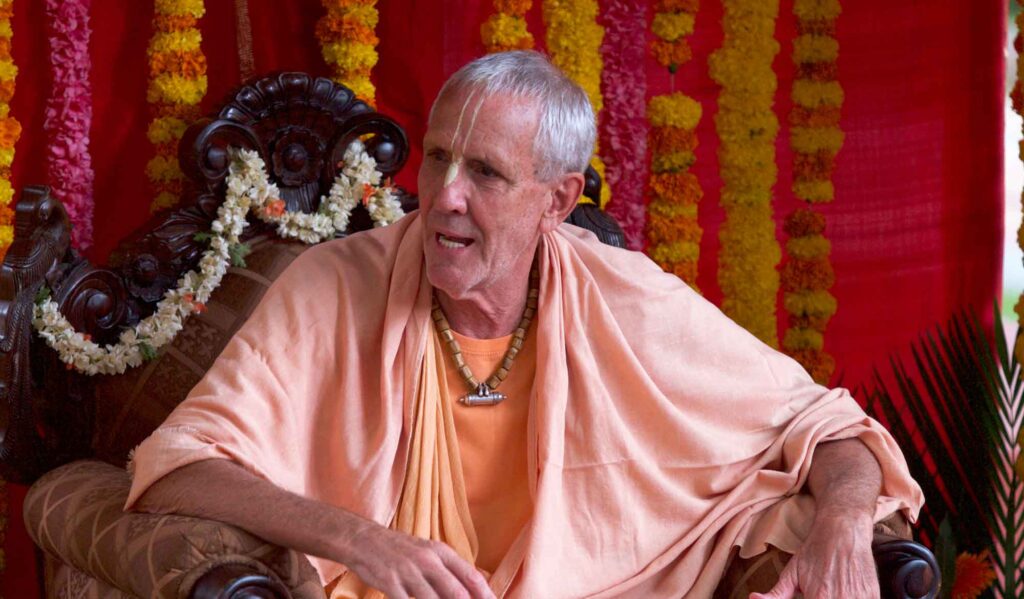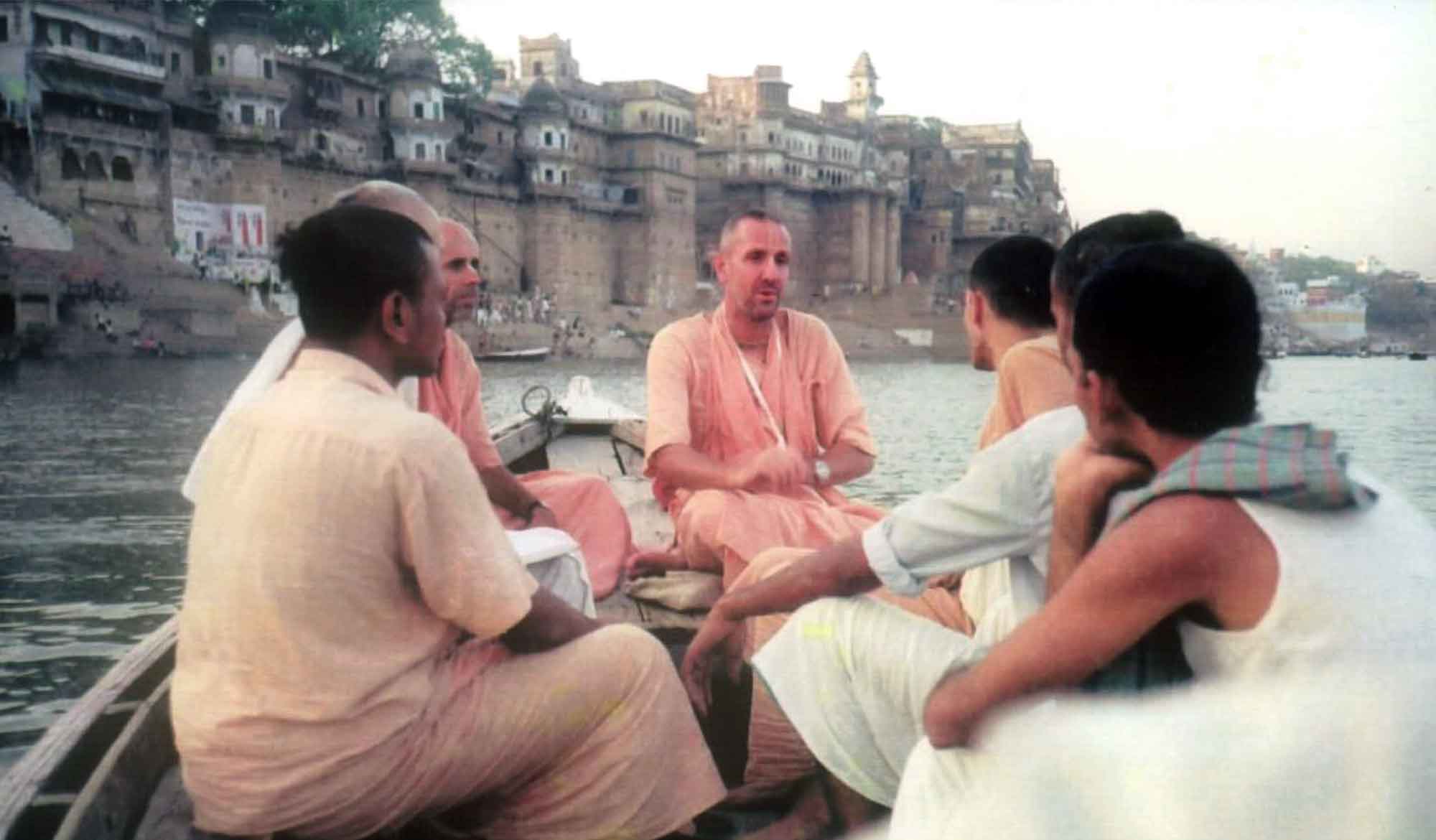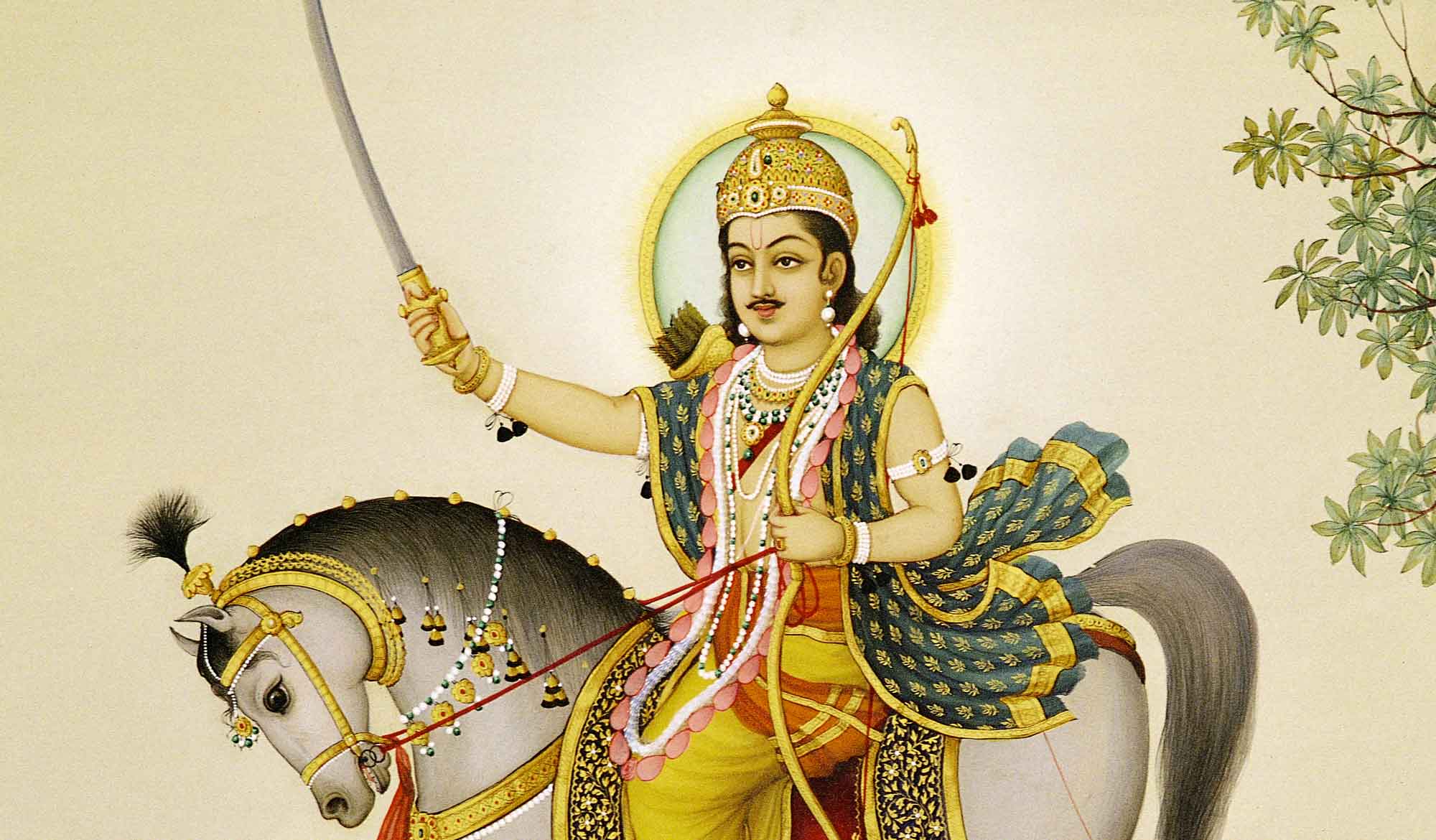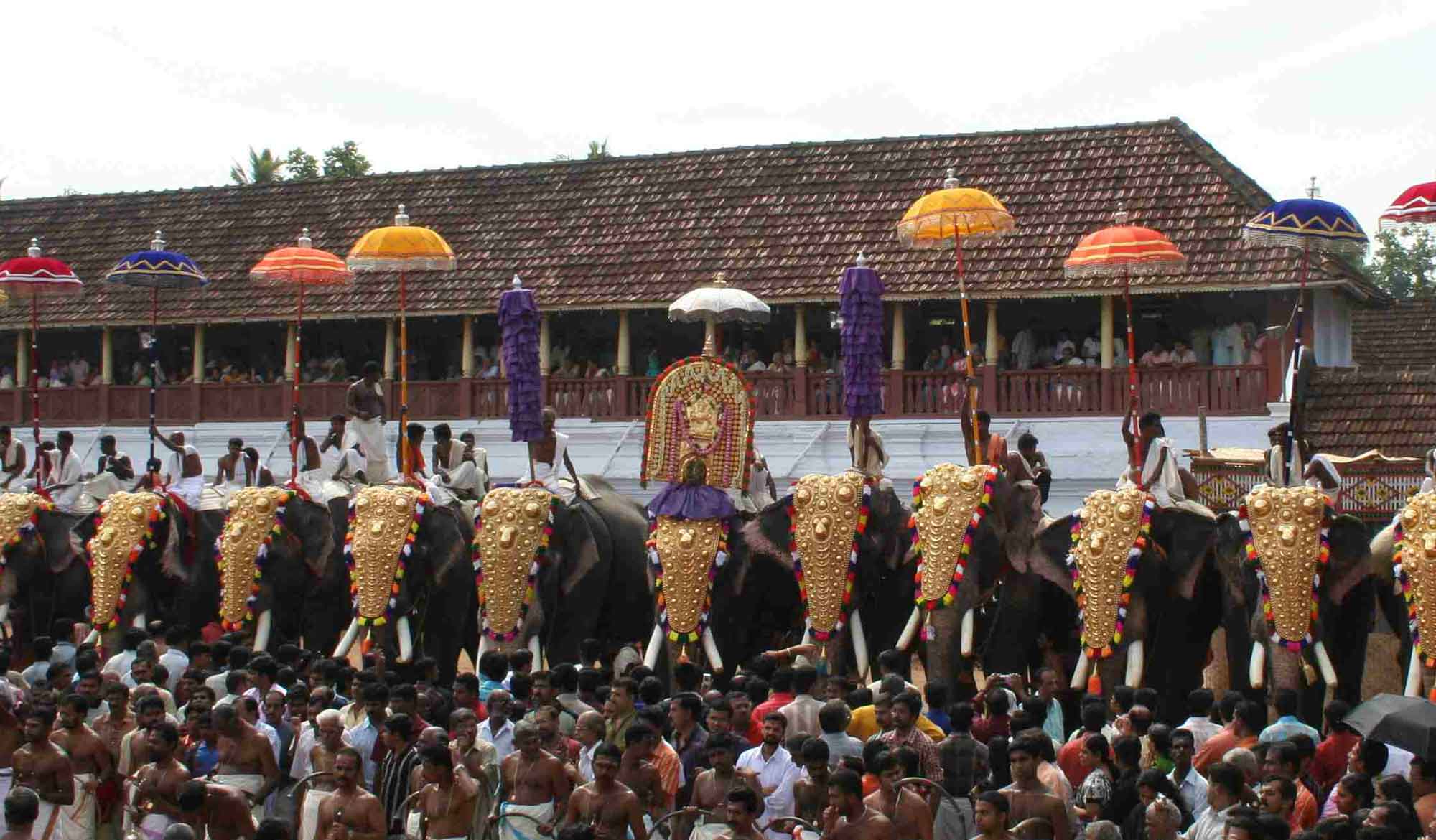by Swami B.G. Narasingha
"More on Prasādam" was written by Swami B.G. Narasingha in September 2002. In this article, Narasingha Maharaja explains what is prasādam, and what isn't prasādam, and begins with a recollection of his time with Śrīla Prabhupāda in the Hyderabad temple.
Devotee: In a recent article you mentioned that we should appreciate prasādam more deeply, but I have also heard you say that everything called ‘prasādam‘ may not actually be prasādam. This seems to be inconsistent, so can you please explain this more clearly?
Swami Narasiṅgha: There are gradations in all things, prasādam included. There are many things to consider. It is easy to say it is prasādam because it comes from a ‘temple,’ but in fact the offering may not have been accepted by Kṛṣṇa.
In the Hyderabad temple it so happened that Śrīla Prabhupāda once asked to taste the prasādam that was being distributed to the guests. When he tasted the prasādam he was upset and he called for the leaders of the temple. He asked them, “What is this?” To which they replied, “It is prasādam Śrīla Prabhupāda.” Then to everyone’s dismay Śrīla Prabhupāda said, “This is not prasādam, this is garbage! You cannot offer just anything to Kṛṣṇa. Kṛṣṇa is not a garbage disposal.”
It was discovered that the cook was not a qualified Vaiṣṇava and he was then removed from that service. Śrīla Prabhupāda did not forget about that incident for a long time. A few days later while taking prasādam in the home of Śrī Bhogilal Patel, a prominent life member, Śrīla Prabhupāda commented to Bhogilal that, “These boys eat garbage. Before I came they ate all garbage.”
There had been a controversy in the Hyderabad temple for some time and some of the devotees were saying that the ‘prasādam‘ was not actually prasādam. Something was wrong and some devotees could sense that. But, whoever said that was called an offender. Later when Śrīla Prabhupāda gave his opinion they were of course vindicated. (Editor’s Note: The devotee who had pointed out to the temple president that the offerings were improper was Swami B. G. Narasiṅgha)
The offerings in the Hyderabad temple had not been prepared properly and therefore the offerings were not accepted by Kṛṣṇa. Many things are required for the preparation of an offering to Kṛṣṇa. The consciousness of the cook is very important in preparing an offering. The consciousness of the one who makes the offering is also important and also the consciousness of the person distributing the prasādam and also the consciousness of the person taking the prasādam is important.
If one takes prasādam of the Deity but does so in the mood of enjoyment then he does not get the full benefit of prasādam, but rather he falls victim to his senses. This has been explained by Śrīla Prabhupāda as follows:
“However, if one accepts prasāda only because of its palatable taste and thus eats too much, he also falls prey to trying to satisfy the demands of the tongue. Śrī Caitanya Mahāprabhu taught us to avoid very palatable dishes even while eating prasādam. If we offer palatable dishes to the Deity with the intention of eating such nice food, we are involved in trying to satisfy the demands of the tongue. In Caitanya-caritāmṛta (Antya-līlā 6.227) it is stated:
jihvāra lālase yei iti-uti dhāya
śiśnodara-parāyaṇa kṛṣṇa nāhi pāya
‘That person who runs here and there seeking to gratify his palate and who is always attached to the desires of his stomach and genitals is unable to attain Kṛṣṇa.'”
Even the selling of bona-fide prasādam may be an offence against prasādam. The accepted tradition is that a temple may sell mahā–prasādam to the temple visitors and the revenues from those sales are to be directly utilized in the service of the Deity. However, if the prasādam is sold to a third party who in turn sells the prasādam for a profit and uses that revenue for material sense gratification then an offence to prasādam is created.
The power of prasādam and mahā-prasādam is always transcendental, but if allowed to be exploited by anyone for material purposes then an offence is created.
There is a story in this regard that once Rāmānujācārya fed a fish the maha–prasādam of the Deity. The fish jumped out of the water to grab the prasādam in its mouth and before it could enter the water again the fish assumed a Vaikuṇṭha form and entered the Vaikuṇṭha planets. The disciples of Rāmānuja saw this and inquired from their guru as to why they had not yet received a Vaikuṇṭha form since they had received mahā-prasādam many times. Rāmānuja replied that his disciples were trying to enjoy the prasādam which is an aparādha, offence. The fish he said made no such aparādha and therefore he attained Vaikuṇṭha.
There was also once an incident wherein some devotees came to Śrīla Śrīdhara Mahārāja to ask him about the “prasādam cookie distribution” in Los Angles. They informed Śrīla Śrīdhara Mahārāja that thousands of people were taking the ‘prasādam cookies’ and they wanted to know if by taking such prasādam the people were guaranteed at least a human body in their next life? Śrīla Śrīdhara Mahārāja said that would depend on what type of prasādam it actually was. He commented that there is gradation in all things and that there are considerations about the prasādam, such as who cooked it, who offered it, who distributed it, and in what consciousness it was honoured, etc. Śrīla Śrīdhara Mahārāja did not simply accept that anything in the name of ‘prasādam‘ was actually prasādam or that all ‘prasādam‘ was the same.
Śrīdhara Mahārāja spoke the following in regard to this issue:
“The current must be there. Only wiring has no value. Do you follow? Connecting wiring but no current. So vaikuṇṭha-nāma grahaṇe, the Vaikuṇṭha connection, transcendental connection must be there. Otherwise form is form, useless. But the spirit must be within the form. Form is also necessary, wiring also necessary to utilize the electric current. But mere wiring has got no utility. The current must be there. So prasāda distribution, all these external exhibition. But if the real connection with divinity otherwise all trade. Otherwise ulterior motive may be there as a business. Jāti-gosvāmī, the Bhāgavata reading, taking money and reading Bhāgavata is a class of trade. That may be trade but if the man who is at the back he has got sincere connection with the Lord then the connection coming and pervades everywhere, that is prasādam. Otherwise imitation. Imitation is not a real thing. So Bhaktivinoda Ṭhākura’s congregation saṅkīrtana. At least one man, the leader of the party must be śuddha–bhakta, pure devotee, the kīrtana party guided under the pure devotee. Then we shall otherwise we will be dancing and jumping in the mundane plane. Connection must be there the electric connection.”
“One may perceive that connection who has got eye. For that we have to get eye, om ajñāna–timirāndhasya jñānāñjana-śalākayā. Our own realisation will be the guarantee, our own knowledge. We see that sort of eye, that is given by Gurudeva. The cataract is removed by Gurudeva, gives the divya–darśana, divine eye. Divya-cakṣu dīkṣā, dīkṣā means transcendental knowledge imparted.”
Similarly, we try to maintain that same discrimination, at least as far as our disciples are concerned. This is the prerogative of a bona-fide guru in teaching his disciples proper discrimination. Sometimes the guru may advise his disciples not to associate with a certain group of devotees, or even to accept so-called prasādam from them if he thinks that such association is not good for their Kṛṣṇa consciousness. We have seen similar instructions from Śrīla Prabhupāda, instructions which he changed according to different circumstances. Of course, a neophyte disciple may reject the order of his guru thinking that he knows more than his guru. Such disciples are usually attached to the society of guru-bhogīs (enjoyers of the gurus property and mission), friendship, and mundane love, but such a guru-tyāgī (one who has rejected his guru) has no real access to the realms of pure devotion.
There was once an incident wherein one of my disciples informed me that he was attending a temple in which all varieties of apa-siddhānta were being preached from the vyāsāsana. He informed me that there were varieties of strange things happening in the temple, such as punk-rock kīrtanas, excessive womens-lib, different types of mentally imbalanced persons living in the temple and many other improper activities. He even once informed me how on Narasiṁha Caturdaśī, a Deity of Lord Narasiṁha Deva was placed in the fire with firecrackers in its belly. The firecrackers ignited and the Deity was blown to pieces. This was stopped upon our pointing out it’s offensiveness, but reveals a total lack of discrimination. After some time, I instructed this disciple to stop attending that temple and stop associating with those devotees, at which he showed me his guru-tyāga, revealing his deep attachments to social life and desiring to be the guru himself, rather than to take instruction from his guru.
If one is an offender to the pure devotees of Kṛṣṇa then we do not accept their so-called prasādam. One may not directly be an offender, but if he resides in an institution wherein grievous offences have been committed to the Lord’s dear-most servants then to a certain extent even the innocent devotees will be affected by the offences. This is called institutionalized aparādha. We may then consider their so-called prasādam and association as undesirable.
It is mentioned in chapter thirteen of Caitanya-bhāgavata as follows:
“Such company, where Vaiṣṇavas are offended may consist of highly pious persons still all their mercy is depleted. If Vaiṣṇavas are offended even by an assembly of sannyāsīs such an assembly is more irreligious than a group of drunkards. For the drunks there is still a chance for salvation but for those who are critical of Vaiṣṇavas there is no hope for liberation.”
The Deity also may withdraw from the association of the offenders. Kṛṣṇa may not accept to be present or remain where the pure devotee has been offended.
It has been mentioned in Bhakti-ratnākara that whenever Śrī Abhirāma Ṭhākura offered his daṇḍavats before a Deity that was being worshipped by an offender that the Deity would burst into pieces. This is of course an extreme example, but the lesson is universal – Kṛṣṇa does not reside where the Lord or his pure devotees have been offended.
Of course, there are many original Deities in Vṛndāvana and elsewhere that are no longer being worshipped by pure devotees, some are even being worshipped by offenders. However, when going to such temples on a holy pilgrimage we may honour the prasādam of such Deities, remembering that these were the Deities of Śrī Rūpa Gosvāmī, Śrī Sanātana Gosvāmī, Śrīla Prabhupāda and so forth. That is a special case.
In the case where, for example, a ‘Ṛtvik‘ (one who has rejected the guru-paramparā) establishes a temple to worship the Deity, accepting only the previous ācārya – that too is not authorised. Even if that temple cost millions of dollars, we do not regard that Kṛṣṇa is present there in His Deity form. Kṛṣṇa is only present where his pure devotee and the paramparā are in full regard. Simply following rules and regulations and reading books of the previous ācārya does not constitute pure devotional service or even an honest attempt to follow in the line of pure devotion.
There was an incident during the time of Śrīla Prabhupāda wherein the Deity of Subhadrā in San Diego burned on the altar leaving only a pile of ashes behind. On the left and right stood Kṛṣṇa and Baladeva but They were unaffected by the fire. When the news of this incident reached Śrīla Prabhupāda he commented that Subhadrā has departed due to aparādha, offences being committed in the temple. Again this is an extreme case and we should not think that such is the only proof that Kṛṣṇa has withdrawn.
For example there are many references in the śāstra to offenders being stricken down with leprosy etc. Yet we should not think that just because an offender has not contacted leprosy that he is not an offender. The main punishment for the offenders of pure devotees is that they are deprived of the association of a mahā-bhāgavata or pure devotee of Kṛṣṇa. There are some temples in the world wherein not even a single person in those temples has ever come in proper connection with a mahā–bhāgavata other than by reading books. Thus a bona-fide guru, considering the neophyte nature or offensive nature of persons in such temples, might instruct his disciples to avoid that type of association.
Another example of the Deity withdrawing from a temple due to offences made against the Lord’s pure devotee can be cited in relation to the Māyāpura temple wherein the Rādhā-Kṛṣṇa Deities (worshiped by Śrīla Prabhupāda in his childhood) and the main Deity of Śrīmatī Rādhārāṇī left the altar under the plea of being carried away by the dacoits and never returned. This unpleasant event took place during the height of offences being committed against Śrīla Śrīdhara Mahārāja. This was indeed an extreme example of the Lord’s dissatisfaction, but historically the blame was placed on the dacoits and the members of that institution never considered a deeper meaning behind that most unfortunate and unprecedented event.
Without proper discrimination a devotee will fall from the path of pure devotional service and become a hodgepodge devotee like so many Hindus. We are to honour prasādam, mahā-prasādam and the association of real Vaiṣṇavas but in doing so we must accept the instruction of our spiritual master. If he tells us to avoid a particular association, we should accept that and always remain humble and obedient to his order. The presence of the Deity, the Holy Name, the potency of prasādam and some many things in Kṛṣṇa consciousness always depend on the dispensation of the director, the good will of the higher Vaiṣṇava.
More Articles by Swami B.G. Narasingha
Banaras – The City of Light
“Banaras - The City of Light” was originally written by Śrīla Narasiṅgha Mahārāja for Clarion Call magazine in 1990. This article explains something of the history of Banaras and its significance to Hindus.
The Dawn of the Age of Love?
“Dawn of the Age of Love” was written in 2009 by Śrīla Narasiṅgha Mahārāja in response to the erroneous idea that Kalki-avatāra does not appear at the end of this Kali-yuga. Quoting previous ācāryas, he shows that this is not the case.
Guruvayur
“Guruvayur” was an article written by Śrīla B.G. Narasiṅgha Mahārāja in 1989 for ‘Clarion Call’ magazine, Vol.2, issue 3. Narasiṅgha Mahārāja explains the history of the famous temple in Kerala as well as some of its peculiarities.

